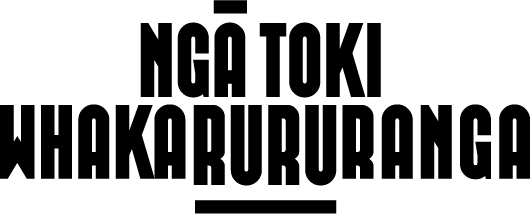Digital
Today, almost everything is digital: texting, Instagram, and Facebook; buying on Trade me; surveillance cameras in supermarkets and streets; downloading music and videos; who gets hired or banks give loans to; paying online, by EFTPOS or even cryptos. And it’s growing all the time.
The digital world is holds a world of possibilities for Māori. But people, and governments, are also recognising that this digital space is not benign. Whoever controls the systems, technologies and data, controls our lives.
Māori are major players in this space as users and developers of apps and platforms. There are lots of opportunities to develop a tikanga-based approach that Māori control.
Alongside this, calls are growing to recognise Māori data sovereignty, and digital governance is integral to rangatiratanga and kaitiakitanga over mātauranga under Te Tiriti o Waitangi.
United Nations special rapporteurs are also calling for recognition of Indigenous data sovereignty and governance in areas like health and privacy as described in the United Nations Declaration on the Rights of Indigenous Peoples. And the movement is growing internationally.
So-called “free trade” agreements are a major threat to making that happen.
Since the early 2000s, Big Tech companies from the US (like Google, Amazon, Apple, Meta (Facebook), credit card companies, joined by the next tier of Airbnb, Uber, etc.) have convinced the US government to leave them largely unregulated and to lock-in that approach through “free trade” rules that have been written for, and largely by, Big Tech companies themselves.
These agreements go far beyond “trade”. They guarantee those who capture or mine data (including Māori data) the right to take and keep it out of the source country, usually to places with minimal rules, and not be required to keep even a copy locally. They guarantee secrecy of source codes, and increasingly algorithms. The online provider doesn’t need to have any presence in a country where it operates, which means they can void being held accountable effectively under that country’s laws – like when they are stealing Māori images or desecrating our rangatirata and taonga.
This has rapidly become a global rule book for how government can, and cannot, regulate the digital ecosystem. Governments have signed-up not understanding the implications, including the Crown, without even recognising there are implications for Te Tiriti and Māori.
In November 2021, the Waitangi Tribunal found, in Wai 2522, that the Crown had breached its Tiriti obligations by signing up to these rules in the Trans-Pacific Partnership Agereement (TPPA). It failed to actively protect rangatiratanga over mātauranga and the ability to implement Māori data sovereignty and Māori digital governance. The Tribunal said:
“Māori rights and interests were not given much (or any) particular consideration in setting the negotiating mandate…”
“We do not share the Crown’s confidence that Māori rights and interests in the digital domain are unaffected by the e-commerce provisions in the CPTPP.”
“We are not convinced that reliance on exceptions and exclusions is sufficient to meet the active protection standard.”
“[T]hese provisions were adopted with minimal or no consideration of Māori rights and interests guaranteed in Te Tiriti/Treaty.”
“We see as particularly problematic the failure to appreciate or understand the link between data and mātauranga Māori, a taonga also guaranteed to Māori under te Tiriti/the Treaty, and in respect of which the Crown has a duty of active protection.”
The Tribunal opted not to make formal recommendations, but to rely instead on processes put in place after a mediation between claimants and the Crown. But the report makes it clear that protection of mātauranga Māori requires “at a minimum engagement and discussion in the spirit of shared decision making”.
Te Pae Tawhiti, which aims belatedly to address the Wai 262 inquiry and the report Ko Aotearoa Tēnei, has data and digital as a key element. Progress has been slow. Meanwhile more free trade agreements have put barriers in its way.
Ngā Toki Whakarururanga has now secured a grant as part of Te Pae Tawhiti to educate and empower Māori to understand these issues and assert their rangatiratanga in the digital space.

